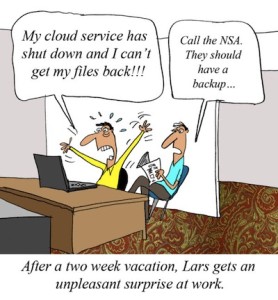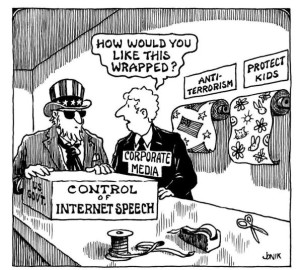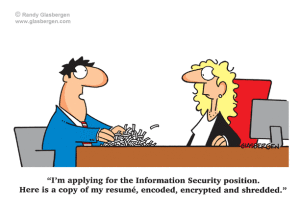
Many people ask us:
What is proxy and what is vpn?
Are they the same?
What is difference between proxy and vpn?
What is better: proxy of vpn?
Today Sahrzad tells your about vpn and proxy and you can decide what is better for you.
Also you can read about the difference between proxy and vpn we wrote before.
First of all let’s find out what is proxy and what is vpn.
According to Wikipedia:
Proxy server is a server (a computer system or an application) that acts as an intermediary for requests from clients seeking resources from other servers. A client connects to the proxy server, requesting some service, such as a file, connection, web page, or other resource available from a different server and the proxy server evaluates the request as a way to simplify and control its complexity. Proxies were invented to add structure and encapsulation to distributed systems.
If the destination server filters content based on the origin of the request, the use of a proxy can circumvent this filter. For example, a server using IP-based geolocation to restrict its service to a certain country can be accessed using a proxy located in that country to access the service.
Web proxies are the most common means of bypassing government censorship, although no more than 3% of Internet users use any circumvention tools.
In some cases users can circumvent proxies which filter using blacklists using services designed to proxy information from a non-blacklisted location
An anonymous proxy server (sometimes called a web proxy) generally attempts to anonymize web surfing. There are different varieties of anonymizers. The destination server (the server that ultimately satisfies the web request) receives requests from the anonymizing proxy server, and thus does not receive information about the end user’s address. The requests are not anonymous to the anonymizing proxy server, however, and so a degree of trust is present between the proxy server and the user. Many proxy servers are funded through a continued advertising link to the user.
A proxy can keep the internal network structure of a company secret by using network address translation, which can help the security of the internal network. This makes requests from machines and users on the local network anonymous. Proxies can also be combined with firewalls.
An incorrectly configured proxy can provide access to a network otherwise isolated from the Internet.
In simple words: proxy is some computer that pass through all your traffic.
Proxy is the simplest way to hide your IP address and avoid Internet filtering.
However proxy works only for your browser. If you need it only for surfing – you can use Proxy.
The next level of secure can be reached by VPN.
And again, smart Wikipedia sais about VPN:
A virtual private network (VPN) extends a private network across a public network, such as the Internet. It enables users to send and receive data across shared or public networks as if their computing devices were directly connected to the private network, and thus are benefiting from the functionality, security and management policies of the private network. A VPN is created by establishing a virtual point-to-point connection through the use of dedicated connections, virtual tunneling protocols, or traffic encryption.
A VPN spanning the Internet is similar to a wide area network (WAN). From a user perspective, the extended network resources are accessed in the same way as resources available within the private network. Traditional VPNs are characterized by a point-to-point topology, and they do not tend to support or connect broadcast domains.
VPNs allow employees to securely access the corporate intranet while traveling outside the office. Similarly, VPNs securely connect geographically separated offices of an organization, creating one cohesive network. VPN technology is also used by individual Internet users to secure their wireless transactions, to circumvent geo restrictions and censorship, and to connect to proxy servers for the purpose of protecting personal identity and location.
VPN may be classified by:
- The protocols used to tunnel the traffic
- The tunnel’s termination point location, e.g., on the customeredge or network-provider edge
- Whether they offer site-to-site or network-to-network connectivity
- The levels of security provided
VPN services cannot make online connections absolutely anonymous, but they can increase privacy and security.
The VPN security model provides:
- Confidentiality such that even if the network traffic is sniffed at the packet level : hacker can only see some encrypted data
- Sender authentication to prevent unauthorized users from accessing the VPN
- Message integrity to detect any instances of tampering with transmitted messages
Tunneling protocols can operate in a point-to-point network topology that would theoretically not be considered a VPN, because a VPN by definition is expected to support arbitrary and changing sets of network nodes. But since most router implementations support a software-defined tunnel interface, customer-provisioned VPNs often are simply defined tunnels running conventional routing protocols.

Why VPN Better than Proxy?
VPN provides you:
- better privacy and security
- faster speed
- best stability
- Works on all systems (Windows, Mac, iOS, Android, Linux, Routers) while proxy works only for browser.
- Unblock all restrictions.
What you can do with VPN and cannot do with most proxies:
- Access any blocked sites worldwide
- Stay safe with VPN outside your browser
- Encrypt your Internet connection
- Stay protected from phishing and malware
- Fastest surfing and watching videos
- Be anonymous is applications and games
To summarize all written above I would like to say that VPN wins!
It is much more secure in conparison with proxy.






















